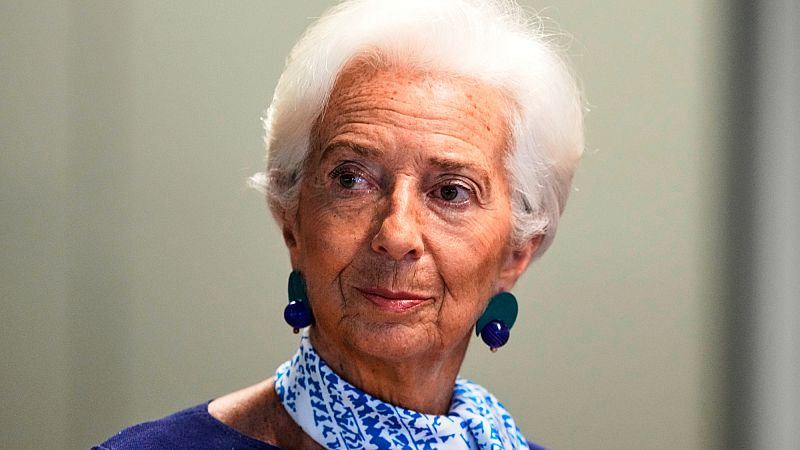
After a year of uninterrupted rate cuts, the European Central Bank (ECB) hit the pause button on Thursday, with President Christine Lagarde saying Frankfurt is now in a good place as inflation returns to target.
In a unanimous decision, the Governing Council kept interest rates unchanged, holding the deposit facility rate at 2%.
“We are at 2% inflation, which is our medium-term target,” Lagarde said, striking a cautiously confident tone at the post-meeting press conference.
While the eurozone economy has shown signs of resilience, Lagarde warned that trade tensions, a stronger euro, and geopolitical uncertainty continue to cloud the outlook. “We are well-positioned to deal with turbulent waters,” she added.
Lagarde reaffirmed the ECB’s data-driven stance, stressing that decisions would continue to be made on a meeting-by-meeting basis.
“We are not pre-committing to any particular rate path,” she said.
Inflation in focus, but no signs of urgency
Annual inflation rose to 2% in June from 1.9% in May. While energy prices increased on a monthly basis, they remained lower than a year ago, Lagarde indicated.
Services inflation ticked up to 3.3%, while food price inflation eased to 3.1% and goods inflation edged down to 0.5%.
Lagarde acknowledged that while inflation expectations remain “strongly anchored” around 2%, there are risks on both sides.
In 2026, the ECB projects inflation may undershoot the target slightly due to base effects and moderating price pressures. However, she was clear that this does not yet warrant a shift in stance.
“We are not going to be moved away by some minor deviation,” she said.
“What matters is our medium-term target, and that remains firmly at 2%.”
Trade tensions and euro strength weigh on outlook
While recent surveys point to continued expansion in both manufacturing and services, the ECB warned that downside risks to growth persist, particularly from escalating trade disputes and financial market volatility.
Lagarde was asked whether the recent appreciation of the euro could affect inflation.
She responded that the ECB does not target exchange rates, but does monitor them carefully as they feed into the bank’s inflation forecasts.
In response to speculation about a potential trade deal between the US and EU, Lagarde said the ECB is not in a negotiating position, but noted that “the sooner trade uncertainty is resolved, the less we’ll have to deal with, which would be welcomed by any economic actor, including ourselves.”
Lagarde confirmed that the ECB will reassess its outlook in September when new projections are published. Until then, the message is clear: no rush, no promises, just patience.
“There will be plenty of data in the coming months,” she said.
“Our collective determination is to keep inflation at 2%, proceed meeting by meeting, and remain data dependent.”
Digital euro no threat to banking system
When asked whether the digital euro could disrupt financial stability or threaten banks, Lagarde firmly rejected the idea.
“I have a pretty simple understanding of what the digital euro is,” she said. “It’s the digital expression of cash — central bank money, sovereign money.
"So to argue that it’s a nuclear bomb is a little over the top. We’re not holding nuclear bombs in our pockets.”
She reiterated the ECB’s commitment to ensuring that the euro area is equipped with the legal and institutional framework needed to launch a digital euro if necessary.
“We have to be strong at home,” Lagarde said, stressing the need to safeguard the euro’s global role amid rising US ambitions in digital finance, following the passage of the GENIUS Act regulating stablecoins.
Economists and markets see hawkish tilt
“We think [Lagarde's] tone was moderately hawkish, as she not only expressed confidence in meeting the 2% inflation target but also noted the economy is performing better than expected—while making no attempt to talk down the euro’s strength,” Matthew Ryan, head of market strategy at Ebury, said.
Hawkish is a term used to describe a monetary policy strategy which prioritizes controlling inflation, even if it could slow economic growth.
Ryan added that, barring a breakdown in US-EU trade talks, the ECB is likely to remain on hold for at least the next few meetings.
The euro edged up 0.1% to 1.1780 on Thursday, while Germany’s 2-year bond yield—a key gauge of short-term rate expectations—rose to 1.90% following Lagarde’s remarks, its highest level in nearly two weeks.







